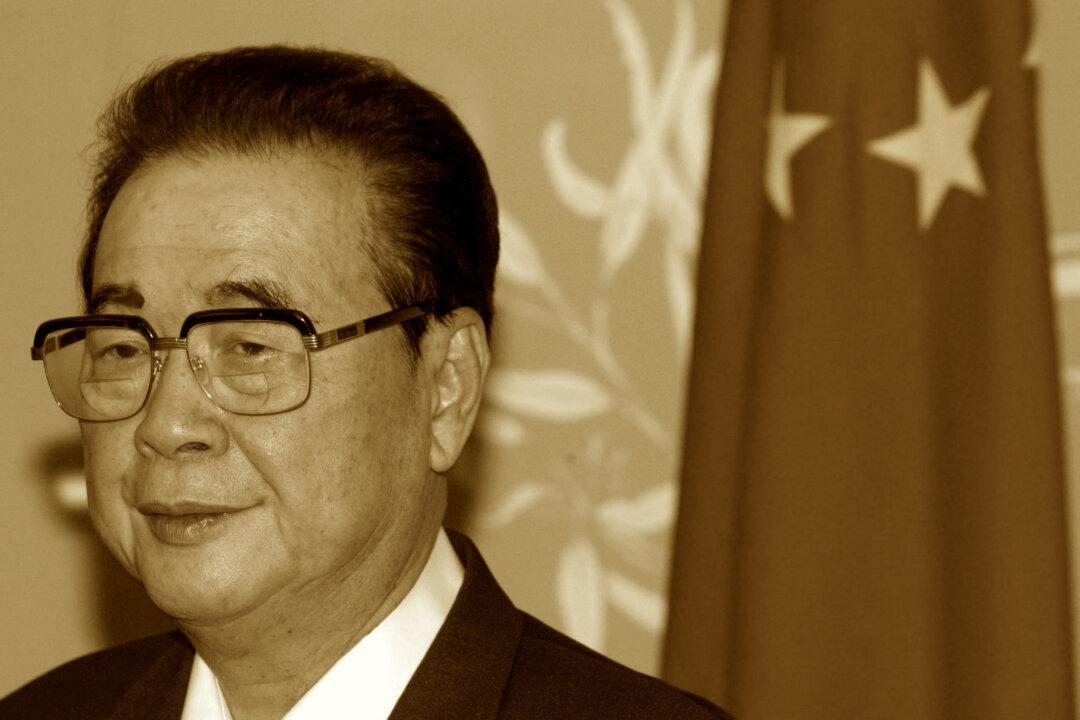BEIJING—Former Chinese Premier Li Peng, reviled by rights activists and many in the Chinese capital as the “Butcher of Beijing” for his role in the 1989 Tiananmen Square crackdown, has died, state media reported on July 23.
Li, who was 90, died on Monday night in Beijing, Xinhua said, more than three decades after his government authorized a bloody suppression of student-led pro-democracy protests in the early hours of June 4, 1989.





